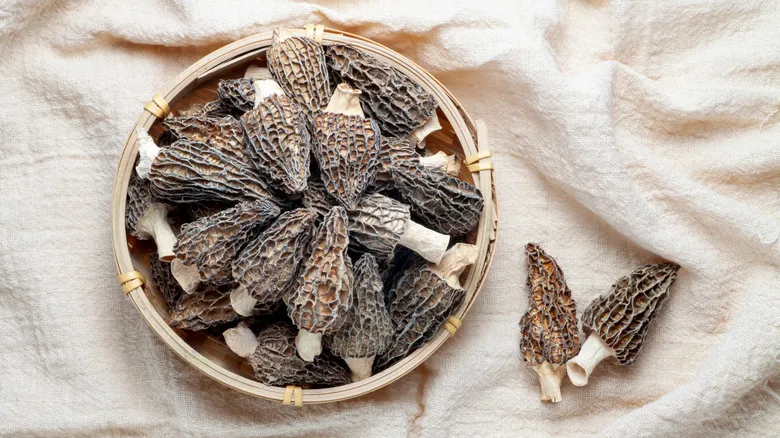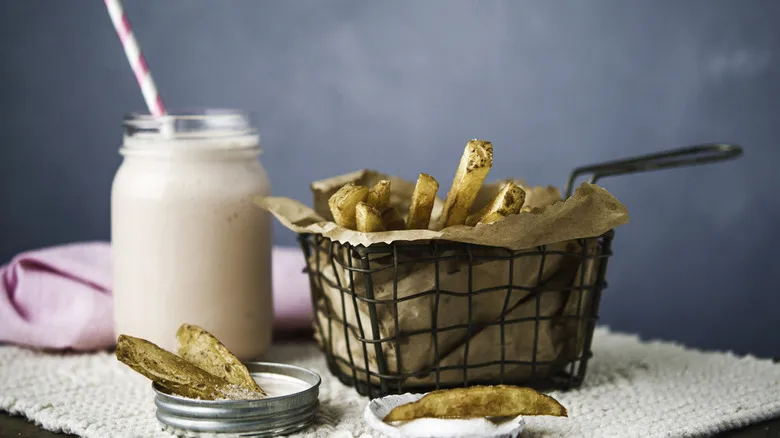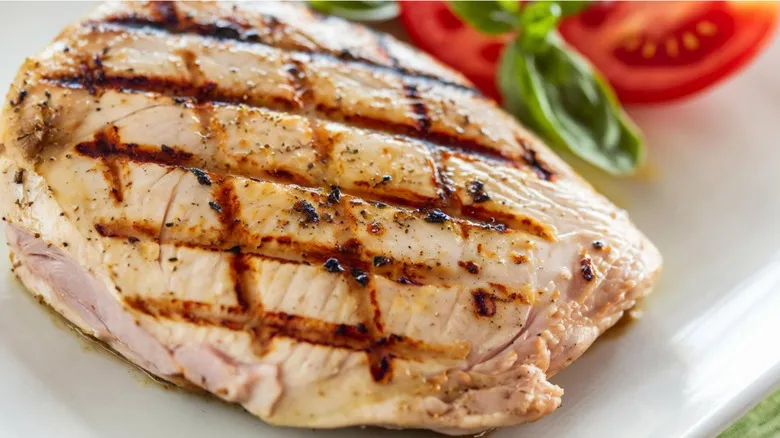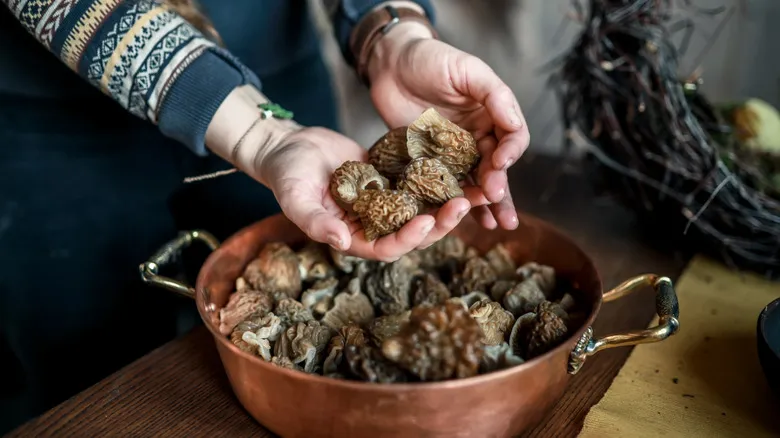If you're going to eat morel mushrooms, be smart about it

There are several errors you can make when dealing with mushrooms, and with morels, the most significant mistake is undercooking them or consuming them raw. Luckily, there are various safe methods to prepare morels, such as sautéing or frying. They should be thoroughly heated and exhibit a deep brown hue when properly cooked.
However, you should avoid eating morels that are discolored, appear dried out (when they should be fresh), or have an unpleasant odor. For cleaning, soaking morels in salt water for a few minutes is an effective way to eliminate dirt and debris trapped in their numerous crevices. While there are several options for storing fresh morels, if you plan to use them soon, the refrigerator is the ideal location, rather than leaving them on the counter. They should also be kept in a breathable container, like a paper bag, to inhibit the growth of harmful bacteria.
It's important to note, especially if you intend to forage for morels yourself, that there are many false morels that can be extremely toxic. Distinguishing them from true morels can be challenging, even for seasoned mushroom foragers. Therefore, it's advisable to purchase morels from trusted sources, even though they can be expensive, to ensure your safety.
Recommended

The Science Behind Why You Love Dipping Fries Into Milkshakes

Is Ginger Ale Caffeine-Free?

The Basic Marinade Ingredient That Ensures The Juiciest Chicken Breast Every Time

The Science Behind Why Milk Makes Cookies Even More Delicious
Next up

